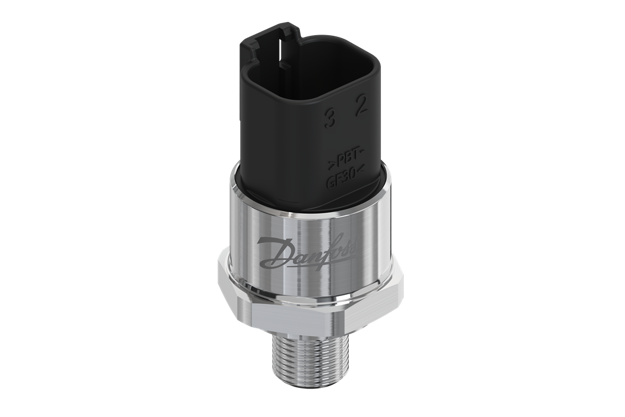The new pressure sensor is an addition to the company’s well-established DST P1xx product portfolio and is designed for OEM hydrogen applications in hydrogen-powered combustion engines, fuel cells and residential electrolyzers.
Meeting the need for hydrogen-compatible pressure sensors
The new DST P150 comes at a critical time in the energy transition, where the development of hydrogen-powered solutions is accelerating, as Markus Butenop, Segment Manager for Marine & Industrial Engines at Danfoss Sensing Solutions points out. “Over the past decade, the global push for decarbonization and technology advancements have really propelled the hydrogen economy. The market now has the means to support sustainable hydrogen production and the drive to adopt low-GWP energy sources is fueling hydrogen adoption globally.”
As hydrogen applications become more widespread, there is a growing need for reliable, hydrogen-compatible pressure sensors. “We know safety and reliability are paramount concerns for our customers,” Marcus says. “Given hydrogen’s flammable nature, it’s critical that hydrogen products are thoroughly tested and that manufacturers can use hydrogen-compatible pressure sensors. This is where our new DST P150 fills an important market need.”
EC79:2009 tested and approved
The new DST P150 builds upon Danfoss’ well-established DST P1xx product portfolio, which is widely used for applications in the HVAC, water, heavy machinery and other industries. Since the sensor is based on MEMS technology, manufacturers get the strong, reliable characteristics of an oil-filled sensing element at a competitive price point. The DST P150 is EC79:2009 approved, meets EMI/EMC standards, and has been thoroughly tested to ensure maximum compatibility, safety and quality.
“Customers familiar with our DST P1xx products will recognize the same commitment to quality and reliability in the DST P150. At the same time, we’ve carefully designed the pressure sensor, so it can meet the unique demands of hydrogen applications,” says Katharina Loehden, Product Manager for Pressure Sensors at Danfoss Sensing Solutions.
Built for demanding, hydrogen environments
The DST P150 features a robust, stainless steel, fully welded design that meets the highest quality standards. The hermetically sealed construction provides excellent media compatibility, so it works well with current and future hydrogen fuels. The DST P150 pressure sensor was developed to resist extreme vibration and temperature change. And all wetted parts in media contact are made of 316L stainless steel to support the highest performance in hydrogen applications.
Focus on increasing uptime and reducing maintenance costs
The DST P150 pressure sensor can include several self-diagnostic features that also ensure reliable performance, including automatic sensor failure detection, power-up diagnostics, run-time diagnostics and harness fault detection. “Ensuring continuous operations is very important to our customers,” Katharina explains, “That’s why we can add upon request an on-board diagnostics system that can communicate internal failure modes to controllers. This can help them quickly identify the root cause of a system issue, reduce troubleshooting costs, and shorten downtime.”
These attributes combine to create a hydrogen-compatible pressure sensor that gives OEMS more efficient application control, and a flexible, future-proof solution.
The DST P150 pressure sensor is designed for:
Hydrogen-powered combustion engines, including drive solutions for agricultural and off-road machinery
Fuel cells, for converting energy in primary and backup power for commercial, industrial and residential buildings and vehicles
Electrolyzer OEMs in residential and other buildings using hydrogen production systems
Other industries with hydrogen applications up to 50 bar
Related products
-
if (isSmallPicture) {


 DST P150 pressure sensor for hydrogen applications
DST P150 pressure sensor for hydrogen applicationsThe DST P150 pressure sensor for hydrogen applications comes with an EC79/2009 approval and is built with a robust, stainless steel, welded design — meeting highest quality standards. The hermetically sealed design provides excellent media compatibility and making it ready for today’s hydrogen and future fuels.



